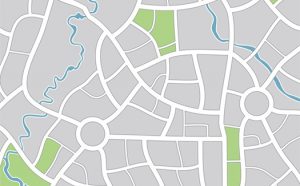What is sexual abuse
Sexual abuse is when someone forces or manipulates you into unwanted sexual activity. This can include touching, kissing, or any other sexual acts without consent, and it often involves threats, coercion, or physical force.
It’s a serious violation of a person’s rights and can cause lasting emotional and physical harm.
Sexual abuse includes if you are engaging in sexual activity that physically or emotionally hurts you or that you are not comfortable with, simply for the pleasure of your partner. Sexual abuse can happen between people who are strangers, acquaintances, colleagues, friends, family, partners or ex-partners, including people who are married. Rape is illegal no matter your relationship.
Myths around sexual abuse
Many of the myths surrounding sexual abuse can make those who have experienced it feel as though they are somehow to blame.
You are never to blame for any sexual abuse that happens to you. 100% of the blame lies with the perpetrator or perpetrators.
Some important things to remember about sexual abuse are:
It can happen to anyone regardless of their age or gender.
It does not always leave visible injuries.
It does not have to involve physical violence or weapons.
It can be perpetrated by a stranger or someone that you know or trust like a partner or ex-partner, family member.
Men who have experienced sexual assault may face some barriers due to stigma. Visit MSAS (for males) – Beech House for more details.
Who is at risk?
Women and girls
Read more about Women and girlsAre disproportionately affected by sexual abuse in domestic (home) settings.
Men and boys
Read more about Men and boysMen and boys experience sexual abuse too and often face barriers to reporting.
Children and young people
Read more about Children and young peopleYoung people are particularly vulnerable, especially if they don’t have trusted adults to confide in.
Pregnant women
Read more about Pregnant womenPregnancy can be a time of increased risk of sexual abuse and other forms of domestic abuse.
LGBTQIA+ people
Read more about LGBTQIA+ peopleThose in same-sex relationships or identifying as LGBTQ+ may face higher risks.
People with disabilities
Read more about People with disabilitiesPeople with physical or mental disabilities may be more targeted by abusive people.
Neurodivergent people
Read more about Neurodivergent peopleNeurodivergent people are those with a neurological difference such as autism, ADHD, dyslexia. Neurodivergent people are disproportionately affected by domestic and sexual abuse.
Minoritised communities
Read more about Minoritised communitiesCultural isolation and language barriers can increase vulnerability.
Older people
Read more about Older peopleEspecially those dependent on caregivers, can be at risk.
Types of sexual abuse
Sexual abuse can take many forms, and it isn’t always physical. Where it takes place in an intimate relationship, it is a type of domestic abuse (for 16 year olds and over).
Types of contact-related sexual abuse
- Rape and non-consensual sexual activity.
- Forcing you to perform sexual acts.
- Using sex as a form of punishment.
- Attacking you due to your sexuality or sexual preferences.
- Forcing you to carry out degrading or humiliating sexual acts or these being done to you.
- Spiking (food and drinks) with the intent to sexually harm you.
Types of non-contact related sexual abuse
- Sexual harassment (unwanted sexual behaviour).
- Sexually intimidating you.
- Threatening you if you do not take part in sexual activity.
- Emotional abuse relating to sex within the relationship.
- Forcing you to watch or look at pornographic material.
- Non-consensual taking of photos or videos of you.
- Cyber flashing (“dick-pics”).
- Revenge porn (sharing images without your consent).
- Controlling contraception.
- Repetitive pregnancy.
Support for sexual abuse
Support options
Police
Have specially trained officers to listen, take reports seriously, and guide victims through the process.
Beech House SARC
Beech House SARC provides free, confidential medical care, forensic services, and emotional support to anyone in Kent and Medway who has experienced sexual assault or rape in their lifetime.
Family Matters
Provides free, confidential counselling and advocacy for children and adults affected by sexual abuse and rape across Kent.
East Kent Rape Crisis Centre
Offers confidential counselling and Independent Sexual Violence advocacy to people, aged 5+, of any gender, who have experienced sexual violence or coercion, at any point in their lives.
Beech House SARC
People over 13 can self refer to Beech House SARC who provide free, confidential medical care, forensic services, and emotional support to anyone in Kent and Medway who has experienced sexual assault or rape.
East Kent Rape Crisis
Provides a range of support services for children, young people and families who have been affected by sexual abuse.
Family Matters
Provides free, confidential counselling and advocacy for children and adults affected by sexual abuse and rape across Kent.
Childline
Childline offers free, confidential support, advice, and a 24/7 helpline for children and young people affected by rape or sexual assault, whether it happened recently or in the past.
Finding support near you
We know asking for help isn’t easy, but our expert services can help keep you safe and help you and your children process what has happened. Support in Kent and Medway is free and confidential.
Find domestic abuse support near you.

Sexual abuse is not normal.
The sexual abuse side needs to be spoken about more. People minimise what happens in relationships but sexual abuse is not normal...
I referred myself in the end, because I was ready to access help. But you have to know where to turn in that situation.
Kate
